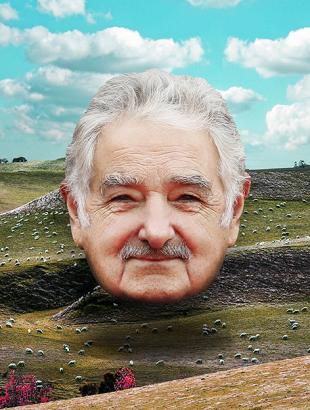- About
- Topics
- Picks
- Audio
- Story
- In-Depth
- Opinion
- News
- Donate
- Signup for our newsletterOur Editors' Best Picks.Send
Read, Debate: Engage.
Uruguayan President José Mujica will leave office in early 2015. The Pulitzer Center describes the former Marxist guerrilla fighter as an ideal of an austere, humble leader.
In Davos he was wearing Crocs and preached astonishing sermons decrying materialism. Also, Mujica took action to provide help for refugees and demanding more responsible measures from richer countries as we are facing the most severe refugee crisis since WWII. See our article on fairplanet from November 20th.
Like Pope Francis, Mujica speaks to people's longing to see a leader who understands the poor. And, now political parties and movements such as in Greece and Spain seem to pursue Mujica's ideas for a social change.
The Pulitzer Center believes that a figure like him could guide out of the social and policy vices that have mired many people in a worship of wealth.But these stories do not report from Uruguay.
Eve Fairbanks is a writer, who loves change, digging deep into the motivations of people who've radically altered their identities or sought to change their countries. She asks What tangible influence has Mujica really had over his society? Can a president with a starkly different personal style actually transform his country in an age when national culture is as dependent on international financial and cultural trends as on a president?
To answer this question, journalist Eve Fairbanks traveled to Uruguay to interview economists, politicians, and the poor. This is a story bigger than Uruguay: It asks how much influence, in our globally interconnected era, a national president can have anymore.
Read her story on PulitzerCenter.org
Illustration: New Republic
